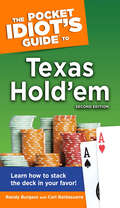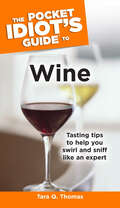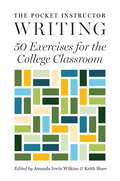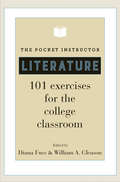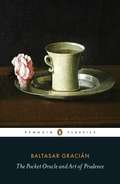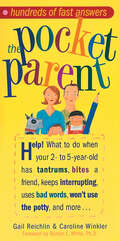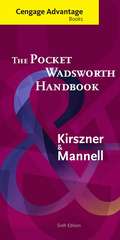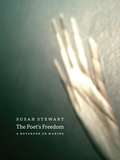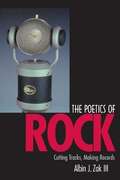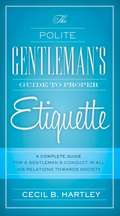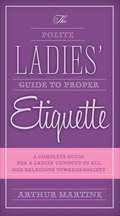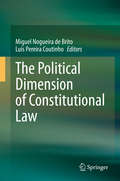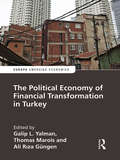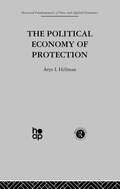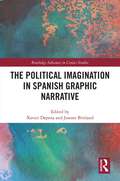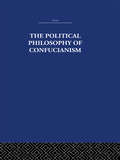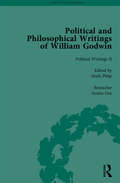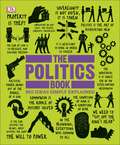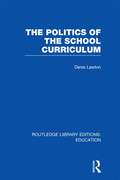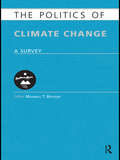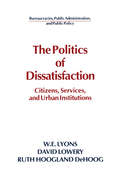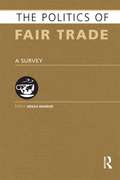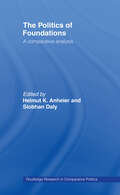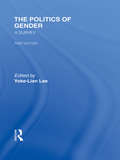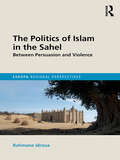- Table View
- List View
The Pocket Idiot's Guide to Texas Hold'em, 2nd Edition: Learn How to Stack the Deck in Your Favor!
by Carl Baldassarre Randy BurgessThe how-to-win guide for the blue chip of poker games. Texas Hold'em, the game featured on the popular television programs and dealt at well-known tournaments, has quickly become the one to play-and the one to win. In the context of teaching readers the basics of Texas Hold'em, this revised edition covers "No Limit" strategies and tournaments, and the basics for winning bigger cash pots. Although the dynamics for this version of the game are similar to its low-limit cousin, "No Limit" strategy is quite different. This revised book covers no-limit in much greater detail, as it relates to cash games, online games, and tournaments.
The Pocket Idiot's Guide to Wine: Tasting Tips to Help You Swirl and Sniff Like an Expert
by Tara Q. ThomasEverything you need to know about wine—to go. With separate chapters for the best whites and reds and special advice on bubbly wines, dessert wines, and more, Tara Q. Thomas provides a perfect quick reference book for pocket or purse. Most importantly, Thomas brings her fresh, approachable tone to this book, making beginners feel welcome with straight, unsnobbish talk about wine—including the basics of labels, how to taste, recommended wines, bargains, price ranges, and more for chardonnay, sauvignon blanc, Riesling, pinot grigio, cabernet sauvignon, merlot, pinot noir, and Syrah.
The Pocket Instructor: 50 Exercises for the College Classroom (Skills for Scholars #6)
by Amanda Irwin Wilkins and Keith ShawFifty easy-to-deploy active learning exercises for teaching academic writing in any fieldThe Pocket Instructor: Writing offers fifty practical exercises for teaching students the core elements of successful academic writing. The exercises—created by faculty from a broad range of disciplines and institutions—are organized along the arc of a writing project, from brainstorming and asking analytical questions to drafting, revising, and sharing work with audiences outside traditional academia. They present students with engaging intellectual challenges to work through together, arriving at generalizable lessons that transfer well across the humanities, social sciences, and natural sciences.Students will learn to articulate a thoughtful question, develop a persuasive thesis, analyze complex evidence, and engage responsibly with sources. The Pocket Instructor: Writing offers teachers concrete ideas about how to cultivate habits of radical revision and create a classroom community with an ethos of trust where students learn to give meaningful feedback. Written for both novice and veteran instructors, this essential guide will benefit faculty in any field who hope to improve student writing in their courses.Key features:• Exercises by experienced faculty from a wide range of disciplines and institutions• Step-by-step instructions with instructor insights for each exercise• A &“Writing Lexicon&” for terms such as motive, thesis, analysis, evidence, and method• Guidance for avoiding plagiarism• Index and cross-references to aid in course planning
The Pocket Instructor: Literature
by Diana Fuss William A. GleasonThis is the first comprehensive collection of hands-on, active learning exercises for the college literature classroom, offering ideas and inspiration for new and veteran teachers alike. These 101 surefire lesson plans present creative and interactive activities to get all your students talking and learning, from the first class to final review. Whether you are teaching majors or nonmajors, genres or periods, canonical or noncanonical literature, medieval verse or the graphic novel, this volume provides practical and flexible exercises for creating memorable learning experiences. Help students learn more and retain that knowledge longer by teaching them how to question, debate, annotate, imitate, write, draw, map, stage, or perform. These user-friendly exercises feature clear and concise step-by-step instructions, and each exercise is followed by helpful teaching tips and descriptions of the exercise in action. All encourage collaborative learning and many are adaptable to different class sizes or course levels. A collection of successful approaches for teaching fiction, poetry, and drama and their historical, cultural, and literary contexts, this indispensable book showcases the tried and true alongside the fresh and innovative.101 creative classroom exercises for teaching literatureExercises contributed by experienced teachers at a wide range of colleges and universitiesStep-by-step instructions and teaching tips for each exerciseExtensive introduction on the benefits of bringing active learning to the literature classroomCross-references for finding further exercises and to aid course planningIndex of literary authors, works, and related topics
The Pocket Oracle and Art of Prudence
by Baltasar GraciánWritten over 350 years ago, The Pocket Oracle and the Art of Prudence is a charming collection of 300 witty and thought-provoking aphorisms. From the art of being lucky to the healthy use of caution, these elegant maxims were created as a guide to life, with further suggestions given on cultivating good taste, knowing how to refuse, the foolishness of complaining and the wisdom of controlling one's passions. Baltasar Gracian intended that these ingenious aphorisms would encourage each reader to challenge themselves both in understanding and applying each axiom.
The Pocket Parent
by Gail Reichlin Caroline WinklerIt's instant relief for when your 2-year-old is on the floor of the toy store, pitching a fit. Or when brother and sister discover that they can't stand each other. Or when your son can't say no to video games.The Pocket Parent is, literally, a pocket-size book of tried-and-true advice, common sense, parental wisdom, and sanity. Written by two professionals who've reared six children between them and made a career out of helping others with parenting issues, this handy book will be a lifesaver for every parent of a 2-to-5-year-old. It begins with an overall view of the Pocket Parent approach to discipline. Based on unconditional love but firm limits, and aimed at keeping the child's dignity and self-esteem intact, here are strategies that include "I" statements, modeling, family meetings, and "one word" requests. Once the ground rules are set, the guide moves to an A-to-Z compendium of common problems. Just look it up-Anger, Bad Words, Biting, Chores, Doctor Visits, Fears at Night, Lying, Separation Anxiety-and find the "Sanity Savers" list of suggestions, easy-to-follow bullets, anecdotes, and more.For the bag, glove compartment, backpack, or shelf in the kitchen, it's there for you whenever you need it.
The Pocket Wadsworth Handbook (Sixth Edition)
by Laurie G. Kirszner Stephen R. MandellThis sixth edition of THE POCKET WADSWORTH HANDBOOK provides up-to-date, realistic advice for today's digital-age students. You will find it clearly written, thorough, easy to navigate, and indispensable for use in college courses and beyond.
The Poet's Freedom: A Notebook on Making
by Susan StewartWhy do we need new art? How free is the artist in making? And why is the artist, and particularly the poet, a figure of freedom in Western culture? The MacArthur Award–winning poet and critic Susan Stewart ponders these questions in The Poet’s Freedom. Through a series of evocative essays, she not only argues that freedom is necessary to making and is itself something made, but also shows how artists give rules to their practices and model a self-determination that might serve in other spheres of work.Stewart traces the ideas of freedom and making through insightful readings of an array of Western philosophers and poets—Plato, Homer, Marx, Heidegger, Arendt, Dante, and Coleridge are among her key sources. She begins by considering the theme of making in the Hebrew Scriptures, examining their accountof a god who creates the world and leaves humans free to rearrange and reform the materials of nature. She goes on to follow the force of moods, sounds, rhythms, images, metrical rules, rhetorical traditions, the traps of the passions, and the nature of language in the cycle of making and remaking. Throughout the book she weaves the insight that the freedom to reverse any act of artistic making is as essential as the freedom to create. A book about the pleasures of making and thinking as means of life, The Poet’s Freedom explores and celebrates the freedom of artists who, working under finite conditions, make considered choices and shape surprising consequences. This engaging and beautifully written notebook on making will attract anyone interested in the creation of art and literature.
The Poetics of Rock: Cutting Tracks, Making Records
by Albin J. Zak IIIA fascinating exploration of recording consciousness and compositional process. It examines the crucial roles played by recording technologies in the construction of rock music and shows how songwriters, musicians, engineers, and producers contribute to the creative project.
The Polite Gentlemen's Guide to Proper Etiquette: A Complete Guide for a Gentleman's Conduct in All His Relations Towards Society
by Cecil B. HartleyFrom advice on how to treat ladies to how to behave at a party this handy 19th-century guidebook will delight readers with it's entertaining nuggets of wisdom. Ever wondered what to do in polite society if you find an insect in your food? Or how a gentleman should ask a lady to dance? And what on earth is the etiquette for smoking cigars? First published in 1860, this classic guide to gentlemanly behavior is a veritable mine of information and indispensable advice for aspiring gentlemen. No matter if a man finds himself at home, in the street, or in a place of amusement, he has but to leaf through this book to learn how best to behave, and indeed how not to behave. And if he can find time between his numerous invitations to balls and hunting parties, he could benefit from a perusal of the sections on gentlemanly deportment and conversational technique. Not forgetting, of course, the all-important advice on how to treat ladies, surely an integral part of any true gentleman's training.
The Polite Ladies' Guide to Proper Etiquette: A Complete Guide for a Lady?s Conduct in All Her Relations Towards Society
by Arthur MartineA complete manual for those who desire to understand the rules of good breeding, the customs of good society, and to avoid incorrect and vulgar habits. Such as: Clear and Comprehensive Directions for Correct Manners, Dress, and Conversation; Instructions for Good Behavior at Dinner Parties, and the Table, with Hints on the Art of Carving and Taking Wine at Table Together with the Etiquette of the Ball and Assembly Room, Evening Parties Deportment in the Street and when Traveling And the Usages to be Observed when Visiting or Receiving Calls In addition to this readers will also master the etiquette of courtship, marriage, domestic duties, and fifty-six rules to be observed in general society.
The Political Dimension of Constitutional Law
by Luís Pereira Coutinho Miguel Nogueira de BritoThis book discusses in what sense constitutional law has a political dimension, raising the question whether constitutional law is fundamentally political as to its validity, terms of its origin, conceptual structure and/or corresponding practice. It also poses the question whether that dimension is a political-theological dimension. A positive answer to these questions challenges the prevailing view that constitutional law is to be conceived strictly as law, moreover as written law, approved at a certain point in history by a particular power and interpreted as any other law by the judiciary. The essays included in this book, written by leading scholars in constitutional theory – including Martin Loughlin, Paul Kahn, Manon Altwegg-Boussac and Massimo La Torre – address these questions in a timely and original way.
The Political Economy of Financial Transformation in Turkey (Europa Perspectives: Emerging Economies)
by Galip Yalman Thomas Marois Ali Rıza GüngenThis volume provides a comprehensive study of Turkey’s financial transformation into one of the most dynamic, if not trouble-free, emerging capitalisms. While this financial evolution has underwritten Turkey’s dramatic economic growth, it has done so without ameliorating the persistently exploitative and unequal social structures that characterize neoliberalism today. This edited volume, written by an interdisciplinary range of political economists, critically examines Turkey’s financial transformation, contributing to debates on the nature of peripheral financialization. Eschewing economistic interpretations, The Political Economy of Financial Transformation in Turkey underscores both the quantitative significance of exponential growth in financial flows and investments, and the qualitative importance of the state’s institutional restructuring around financial imperatives. The book presents today’s reality as historically rooted. By understanding the choices made under the new Republic (from 1923 onwards), one can better locate the changes launched as a newly liberalizing society (since 1980). Likewise, the decisions made in response to Turkey’s 2001 financial crisis spurred a tectonic break in state–market–society financial relations. The waves of change have reached far and wide: from corporate strategies of accumulation and growth to small- and medium-sized enterprises’ strategies of financial survival; from how finance has penetrated the provisioning of housing to how households have become financialized. Put together, one grasps the complexity and historicity of the power of contemporary finance. One also sees that the changes made have not been class-neutral, but have entailed elevating the interests of major capital groups, particularly financial capital, above the interests of the poor and workers in Turkey. Nor are these changes constrained to its national borders, as what transpires domestically contributes to the making of a financialized world market. Through this ‘Made in Turkey’ approach the contributions in this volume thus challenge dominant understandings of financialization, which are derived from the advanced capitalisms, by sharing the specificity of emerging capitalisms such as Turkey.
The Political Economy of Protection (Harwood Fundamentals Of Pure And Applied Economics Ser.)
by Arye L. HillmanFirst Published in 2001. Routledge is an imprint of Taylor & Francis, an informa company.
The Political Imagination in Spanish Graphic Narrative (Routledge Advances in Comics Studies)
by Xavier Dapena Joanne BritlandIn a spirit of community and collective action, this volume offers insights into the complexity of the political imagination and its cultural scope within Spanish graphic narrative through the lens of global political and social movements. Developed during the critical years of the COVID-19 pandemic and global lockdown, the volume and its chapters reflect the interdisciplinary nature of the comic. They employ a cultural studies approach with different theoretical frameworks ranging from debates within comics studies, film and media theory, postcolonialism, feminism, economics, multimodality, aging, aesthetics, memory studies, food studies, and sound studies, among others. Scholars and students working in these areas will find the book to be an insightful and impactful resource.
The Political Philosophy of Confucianism: An interpretation of the social and political ideas of Confucius, his forerunners, and his early disciples.
by Leonard Shihlien HsüFirst published in 1932.One of the most astonishing features of the Confucian teaching to the modern reader is its anticipation of the Spencerian formula of evolution and its adaptation of this to a programme of progress. This volume shows that Confucius' teaching is still relevant in many of its features, not merely for China but also for the West. Contents include: The background of Confucian political philosophy; the state and its origin; political unity and organization; the principle of benevolent government; law and justice; democracy and representation, social evolution.
The Political and Philosophical Writings of William Godwin vol 2
by Martin Fitzpatrick Mark Philp Pamela Clemit William St.ClairContains all the major political, philosophical and educational writings of William Godwin, one of the foremost philosophers of his age. His work on government and individual freedom, "Political Justice", made him the chief exponent of English radicalism in the latter half of the 18th century.
The Politics Book (Big Ideas Simply Explained)
by Dorling Kindersley Publishing StaffFrom ancient and medieval philosophers such as Confucius and Thomas Aquinas, to revolutionary thought leaders such as Thomas Jefferson and Leon Trotsky, to the voices who have shaped modern politics today — Mao Zedong, Malcolm X, Che Guevara, and more — The Politics Book clearly and simply explains more than 100 groundbreaking ideas in the history of political thought. <p><p> With easy-to-follow graphics, succinct quotations, and accessible text, The Politics Book is an essential reference for students and anyone wondering how politics works.
The Politics of the School Curriculum (Routledge Library Editions: Education)
by Denis LawtonIf the curriculum can be defined as a ‘selection from the culture of society’, the central question then becomes ‘who selects’. This volume answers this question, reviewing various aspects of the curriculum and its planning. For many years the control of the curriculum was uncontroversial. In the 1970s this situation changed: teachers were increasingly criticised for having too much power; the Department of Education was suspected of wanting more control and local education authorities felt they should be more involved in curriculum planning. In reviewing some of the reasons for these conflicting pressures, two central themes emerge: first, the change from a partnership model of control to a complex system of accountability; and second the fact that these and many other changes which occur tend to be brought about as a result of secret decisions and central manipulation rather than through open negotiation. Among the areas covered are the changing position of teachers and the Department of Education, the influence of examinations on the curriculum, and some political aspects of curriculum evaluation and the different models used.
The Politics of Climate Change: A Survey
by Maxwell T. BoykoffClimate change is a defining issue in contemporary life. Since the Industrial Revolution, heavy reliance on carbon-based sources for energy in industry and society has contributed to substantial changes in the climate, indicated by increases in temperature and sea level rise. In the last three decades, concerns regarding human contributions to climate change have moved from obscure scientific inquiries to the fore of science, politics, policy and practices at many levels. From local adaptation strategies to international treaty negotiation, ‘the politics of climate change’ is as pervasive, vital and contested as it has ever been. On the cusp of a new commitment to international co-operation to rein in greenhouse gas emissions, this essential book intervenes to help understand and engage with the dynamic and compelling ‘Politics of Climate Change’. This edited collection draws on a vast array of experience, expertise and perspectives, with authors with backgrounds in climate science, geography, environmental studies, biology, sociology, political science, psychology and philosophy. This reflects the contemporary conditions where the politics of climate change permeates and penetrates all facets of our shared lives and livelihoods. Chapters include the Politics of Climate Science, History of Climate Policy, the Cultural Politics of Climate Change: Interactions in the Spaces of Everyday, the Politics of Interstate Climate Negotiations, the Politics of the Carbon Economy, and Addressing Inequality. An A – Z glossary of key terms offers additional information in dictionary format, with entries on topics including Carbon tax, Stabilization, Renewable technologies and the World Meteorological Organization. A section of Maps offers a visual overview of the effects of environmental change.
The Politics of Dissatisfaction: Citizens, Services and Urban Institutions (Bureaucracies, Public Administration, And Public Policy Ser.)
by David Lowery William E. Lyons Ruth Hoogland DeHoogThe Politics of Dissatisfaction: Citizens, Services, and Urban Institutions is destined to be a classic in public administration and public policy; it makes major theoretical and empirical contributions to the literature in both fields. It is a rigorous empirical attempt to assess the public choice view of citizenship and local government. The research upon which this book is based was founded on conversations between two of its authors, W. E. Lyons and David Lowery, during the early 1980s.
The Politics of Fair Trade: A Survey
by Meera WarrierThe Politics of Fair Trade is a brand new title that explores the current issues in fair trade, featuring in-depth analysis by the leading experts in this field. Edited by Meera Warrier, this exciting title boasts case studies of the key commodities involved in fair trade issues, plus an A-Z of entries dealing with issues, organizations, disputes, and relevant countries with regard to fair trade.
The Politics of Foundations: A Comparative Analysis (Routledge Research in Comparative Politics)
by Helmut Anheier Siobhan DalyThis book explores the roles and visions foundations have of, and for, themselves in the new Europe. The leading contributors go beyond a quantitative profile of foundations in Europe, and probe deeper into their role and contributions in meeting the economic, cultural, environmental and educational needs of European societies. Includes a mapping and appraisal of foundation visions, policies and strategies, and an overall assessment of the current and future policy environment in which they operate. The Politics of Foundations combines the detailed comparative analysis of current challenges facing foundations, with individual country studies on Austria, Belgium, Czech Republic, Denmark, Estonia, France, Germany, Greece, Hungary, Ireland, Italy, the Netherlands, Norway, Poland, Spain, Sweden, Switzerland and the United Kingdom and also includes a comparative view from the United States. This valuable reference will be of interest to researchers and students of foundations, policy-making, comparative politics and international business, as well as policy makers and professionals.
The Politics of Gender: A Survey
by Yoke-Lian LeeThis new title in the Politics of . . . series addresses the major theme of the politics of gender. Chapters on a variety of issues, contributed by experts in the field of gender, include Human Trafficking and EU Law, Gender in International Relations, the Gender Politics of Philosphy/Political Theory, the Construction of Masculinity in Hollywood Movies, the Politics of Law, and the Politics of Mainstreaming Gender in the Peace and Security Agenda of the African Union. An A–Z glossary offers supplementary information on key terms, with entries including abortion, Commission on the Status of Women, ecofeminism, equal access, human rights, migration, population control, and sex tourism.
The Politics of Islam in the Sahel: Between Persuasion and Violence (Europa Regional Perspectives)
by Rahmane Idrissa‘Ideologies need enemies to thrive, religion does not’. Using the Sahel as a source of five comparative case studies, this volume aims to engage in the painstaking task of disentangling Islam from the political ideologies that have issued from its theologies to fight for governmental power and the transformation of society. While these ideologies tap into sources of religious legitimacy, the author shows that they are fundamentally secular or temporal enterprises, defined by confrontation with other political ideologies–both progressive and liberal–within the arena of nation states. Their objectives are the same as these other ideologies, i.e., to harness political power for changing national societies, and they resort to various methods of persuasion, until they break down into violence. The two driving questions of the book are, whence come these ideologies, and why do they–sometimes–result in violence? Ideologies of Salafi radicalism are at work in the five countries of the Sahel region, Burkina Faso, Mali, Niger, (Northern) Nigeria and Senegal, but violence has broken out only in Mali and Northern Nigeria. Using a theoretical framework of ideological development and methods of historical analysis, Idrissa traces the emergence of Salafi radicalism in each of these countries as a spark ignited by the shock between concurrent processes of Islamization and colonization in the 1940s. However, while the spark eventually ignited a blaze in Mali and Nigeria, it has only led to milder political heat in Niger and Senegal and has had no burning effect at all in Burkina Faso. By meticulously examining the development of Salafi radicalism ideologies over time in connection with developments in national politics in each of the countries, Idrissa arrives at compelling conclusions about these divergent outcomes. Given the many similarities between the countries studied, these divergences show, in particular, that history, the behaviour of state leaders and national sociologies matter–against assumptions of ‘natural’ contradictions between religion (Islam) and secularism or democracy. This volume offers a new perspective in discussions on ideology, which remains–as is shown here–the independent variable of many key contemporary political processes, either hidden in plain sight or disguised in a religious garb.
